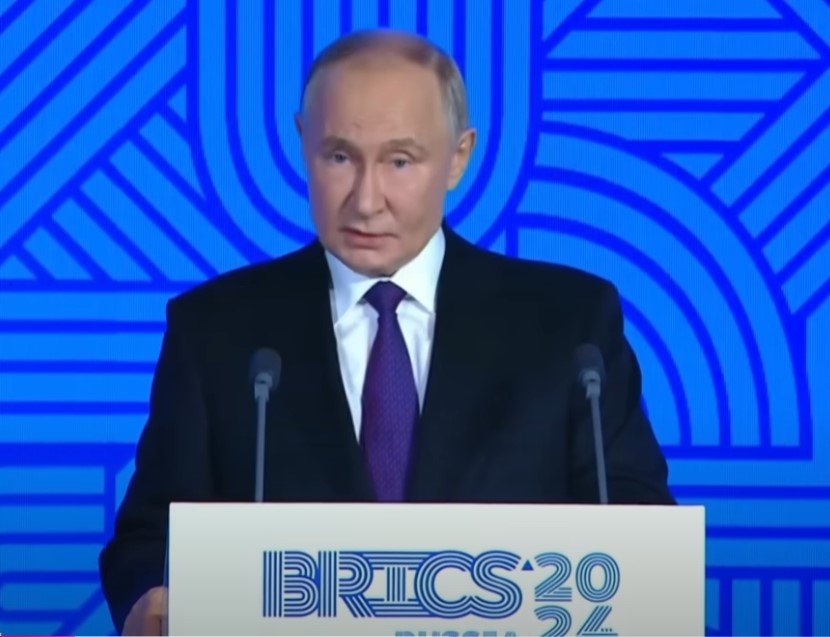By Suzzane Efiong, October 23, 2024
MOSCOW – Russia has hosted the latest summit of the BRICS nations—Brazil, Russia, India, China, and South Africa—in what analysts are interpreting as a calculated message to the West. The meeting took place amidst heightened geopolitical tensions and shifting global alliances.
The BRICS grouping has long been viewed as a platform for emerging economies to challenge the dominance of Western financial and political structures, particularly those led by the United States and Europe. This year’s summit, held in Moscow, took on added significance as Russia faces increasing isolation from the West due to its ongoing war in Ukraine and sanctions imposed by NATO countries and their allies.

The summit’s theme of “Strengthening Multilateralism for Global Development” reflects the bloc’s desire to present an alternative vision for global governance, one that is less dependent on Western-centric institutions like the International Monetary Fund (IMF) and the World Bank.
For Russia, the BRICS summit provided a vital diplomatic opportunity to demonstrate that, despite the sanctions and diplomatic isolation it faces from the West, it remains a key player on the global stage. Russian President Vladimir Putin’s active role in the summit sent a clear message: Russia is not backing down, and it has strong alliances with some of the world’s largest and most influential economies.
The summit discussions centered on deepening economic cooperation within the BRICS framework, particularly through trade, investment, and energy partnerships. A key point of the summit was the ongoing development of the BRICS New Development Bank (NDB), which is seen as a potential rival to Western financial institutions like the World Bank. The NDB, headquartered in Shanghai, has already made significant investments in infrastructure and development projects across member states and beyond, offering loans without the stringent conditions typically imposed by Western institutions.
In light of global economic instability, exacerbated by the war in Ukraine and Western sanctions, BRICS leaders emphasized the importance of expanding trade using local currencies. Both Russia and China, in particular, are keen to reduce reliance on the US dollar in international transactions, a move that could weaken the West’s economic leverage. The promotion of de-dollarization—conducting trade in alternative currencies such as the yuan, ruble, or the Indian rupee—was a focal point during the summit, and it signals the bloc’s desire to shift away from the dollar-dominated financial system.
The summit also comes at a time of significant geopolitical realignment. For Russia, its relations with the West have deteriorated rapidly since the start of the Ukraine war. Sanctions have severely impacted Russia’s economy, and its ability to conduct international trade has been curtailed. By strengthening ties with BRICS nations, Moscow aims to circumvent these sanctions and find alternative markets for its energy exports, as well as critical goods like grain.
For China, another prominent BRICS member, the summit reinforces its ongoing challenge to Western dominance, particularly in the Indo-Pacific. The Chinese leadership is positioning BRICS as a platform to assert its global influence while presenting itself as an advocate for the developing world. For India, BRICS is a forum that allows it to pursue its strategic autonomy while maintaining ties with both Western powers and traditional partners like Russia.
South Africa, the smallest economy in the group, sees BRICS as an opportunity to amplify its voice on the world stage and to attract investment. Similarly, Brazil, under President Luiz Inácio Lula da Silva, views the bloc as a means to strengthen its economic independence and secure a greater role in global decision-making.
The West, particularly the United States and Europe, views the growing influence of BRICS with concern. As the bloc strengthens its economic cooperation and expands its global influence, there are fears in Western capitals that BRICS could weaken the effectiveness of sanctions, undermine the US dollar’s global dominance, and erode the liberal international order that has been in place since the end of World War II.
As BRICS continues to evolve, the West will need to adapt to a more multipolar world, where emerging powers have greater influence and where the rules of the global game may no longer be dictated solely by Western interests.

